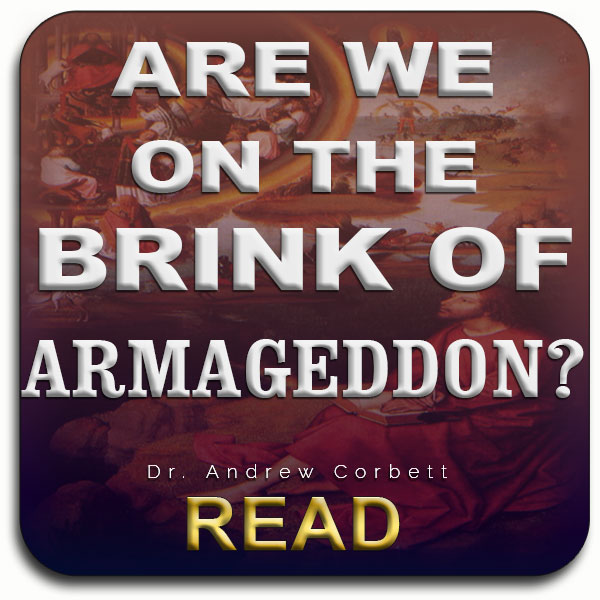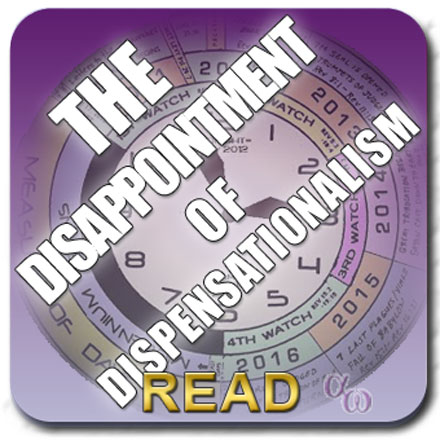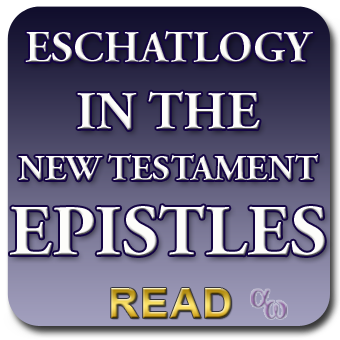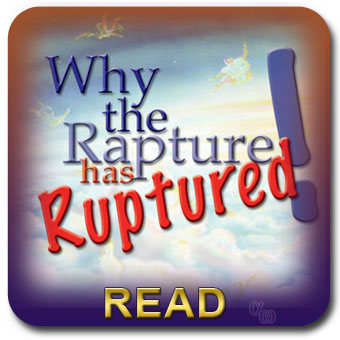
by Andrew Corbett | Oct 13, 2018 | Book of Revelation |
Armageddon? Some say it’s just about to happen. But what does the Bible say about it? Whenever things flare up in the Middle East, especially involving Israel, there are always people who speculate that Armageddon is about to happen. The word “Armageddon” has now become synonymous with “the final battle that ends the world”. So ubiquitous has the word become for the end of the world that Hollywood have titled blockbuster films with it, fictional books have been written about it, and media commentators now refer to it as the catch-all word to describe the level potential fall-out from a Middle Eastern battle.
This is all very staggering considering that it occurs only once in Scripture, in the Book of Revelation, and is not alluded to anywhere else. Added to this is…

by Andrew Corbett | May 28, 2018 | Bible Prophecy |
Dispensationalism comes in various forms. A “dispensation” is a period of time. An era. In its most extreme form it regards God as having multiple plans of salvation depending on the particular dispensation. These dispensations generally commence with the Dispensation of Innocence and include other Dispensations such as the Dispensations of Works, Law, and Grace. This is contrasted by the orthodox Christian view of regarding God only ever having one means of salvation: the work of Jesus of Nazareth, especially His suffering, death and resurrection. But Dispensationalism is most notably distinguished from orthodox Christianity in the way it regards Israel. Dispensationalism says that God has a distinct plan and salvation for Israel. The roof of Dispensationalism is then supported by the walls of a novel form of end-times teaching. This includes such things as a rapture of the Church, a two-part Tribulation period, the global rule of an Anti-Christ, the reconstruction of a Temple in Jerusalem, the Battle of Armageddon, and then the Return of Christ. Dispensationalist Bible Prophecy teachers have gone to great lengths in their predictions of what the future holds based on their interpretation of the Bible. I have written a separate article on some of these predictions. But there’s a problem. A big problem!

by Andrew Corbett | Apr 5, 2018 | Eschatology |
New Testament epistles are sprinkled with eschatological references which have led to confusion and the belief that the rules of hermeneutics must be re-written to accommodate particular eschatological systems. We will now survey how these Epistles make eschatological references and how we might best understand them.
A Sense of Imminence
¶ The end of all things is at hand; therefore be self-controlled and sober-minded for the sake of your prayers.
First Peter 4:7
The eschatology found in the New Testament Epistles conveys an expectation of imminence. Each of the writers had a sense that something was about to happen very soon. It could be argued that they were misguided and that the Scriptures accurately recorded their misinformed views. We see evidence of this sort of thing throughout the Old Testament where misinformed human perspectives were accurately recorded in God’s inspired Word. This includes such statements like, “from the rising of the sun” (Psalm 50:1; Isaiah 45:6; Malachi 1:11). Of course, we know that the sun doesn’t rise but from the perspective of the human authors it appeared to. But this doesn’t seem to be the sort of thing happening in the Epistles. Unlike the genre of the Psalms or Prophets, these eschatological statements found in the Epistles are not poetic. They are presented as statements of fact – often linked to an injunction (1Peter 4:7; Hebrews 10:24-25). If it is the New Testament perspective is actually just the accurate recording of misguided human opinion, it then makes the linked injunctions (moral commands) redundant.

by Andrew Corbett | Mar 12, 2018 | Bible Prophecy |
For example, some time ago I was lecturing in a closed country on the topic of Hermeneutics (how to interpret the Bible) when one student asked me about the ‘Third Temple’ supposedly prophesied in the Bible as a sign of the last days immediately preceding Christ’s return. This student had innocently adopted an end-times-guess (adiaphora) as if it was a Biblical idea. My question in response to her question was which text in the Bible was she basing her question? She looked at me stunned! She thought I was playing some game with her. “Of course the Bible prophesies that the Temple will be rebuilt in the Last Days in order to usher in the return of the Lord!” she responded. Again I asked her – “Where?” I have asked this question in lectures in several countries and have never been shown where the Bible prophesies such a last days rebuilt (Third) Temple!

by Andrew Corbett | Mar 3, 2018 | Eschatology |
The End. That’s what the Greek word “eschaton” means. But a question that some are now asking is, “The end of what?” Up until recently most Christians would have said- the world, but now good Biblical scholarship is shedding greater light upon this highly controversial word and revealing that most of us may have been wrong!
When I went to church as a young boy, ‘End Times’ teaching was all the rage. Afterall, there were wars in the Middle East, famines in Africa, natural disasters in Asia, and economic struggles in Europe and America. There were conspiracy theories, global uncertainty, a worldwide fuel crisis, and the emerging cashless society. All of these things were apparently predicted in the Bible many thousands of years ago as being the last signs before the end of the world. As the last three decades have unfolded however, it has become obvious that none of these things have led to the end of the world, and now most people realise that the Bible doesn’t even make reference to them – let alone pinning the triggers for the end of the world upon them! With so much error in this speculation it’s little wonder that many Christians have put eschatology (the study of ‘final things’) either in the too-hard basket or now regard it as not worth worrying about because nobody knows anyway.

by Andrew Corbett | Nov 8, 2017 | Book of Revelation |
After years of studying the Book of Revelation, I have become persuaded of the Classical Preterist Position. One of the first objections raised against Preterism (often confused with Hyper-Preterism, or, ‘Pantellism’) is based on Revelation 1:7. Which says that when Christ ‘comes’, ‘every eye will see Him.’ Opponents of Preterism offer what they think is a death-blow to Preterism with this apparent ‘knock-out’ verse. As a Preterist, I have to admit, if their interpretation of this verse is correct, Preterism can not be true. Therefore, how we understand this verse will either destroy the validity of Preterism or, could it possibly validate it?

by Andrew Corbett | Jul 11, 2017 | Bible Prophecy |
Recently, one of the world’s most listened to Bible teachers received a question from a listener about Christ’s failure to return “soon”. It’s actually a great question and is frequently responded to with answers from most popular Bible teachers that actually portrays the Bible as nonsensical! How this question is answered depends on the method we use to interpret any Scripture passage. Yet, using the principles of sound Bible interpretation is the very reason why such Bible prophecies about Christ’s “soon” return are a problem for the thoughtful Bible reader.

by Andrew Corbett | May 4, 2016 | Bible Prophecy |
Many believers have come to believe in a ‘rapture’ and that it is prophesied in the Bible without realising that it is only a fairly recent idea! When we look at the teaching of some of these Bible-Prophecy preachers it soon becomes apparent that the Bible does not teach a rapture!









